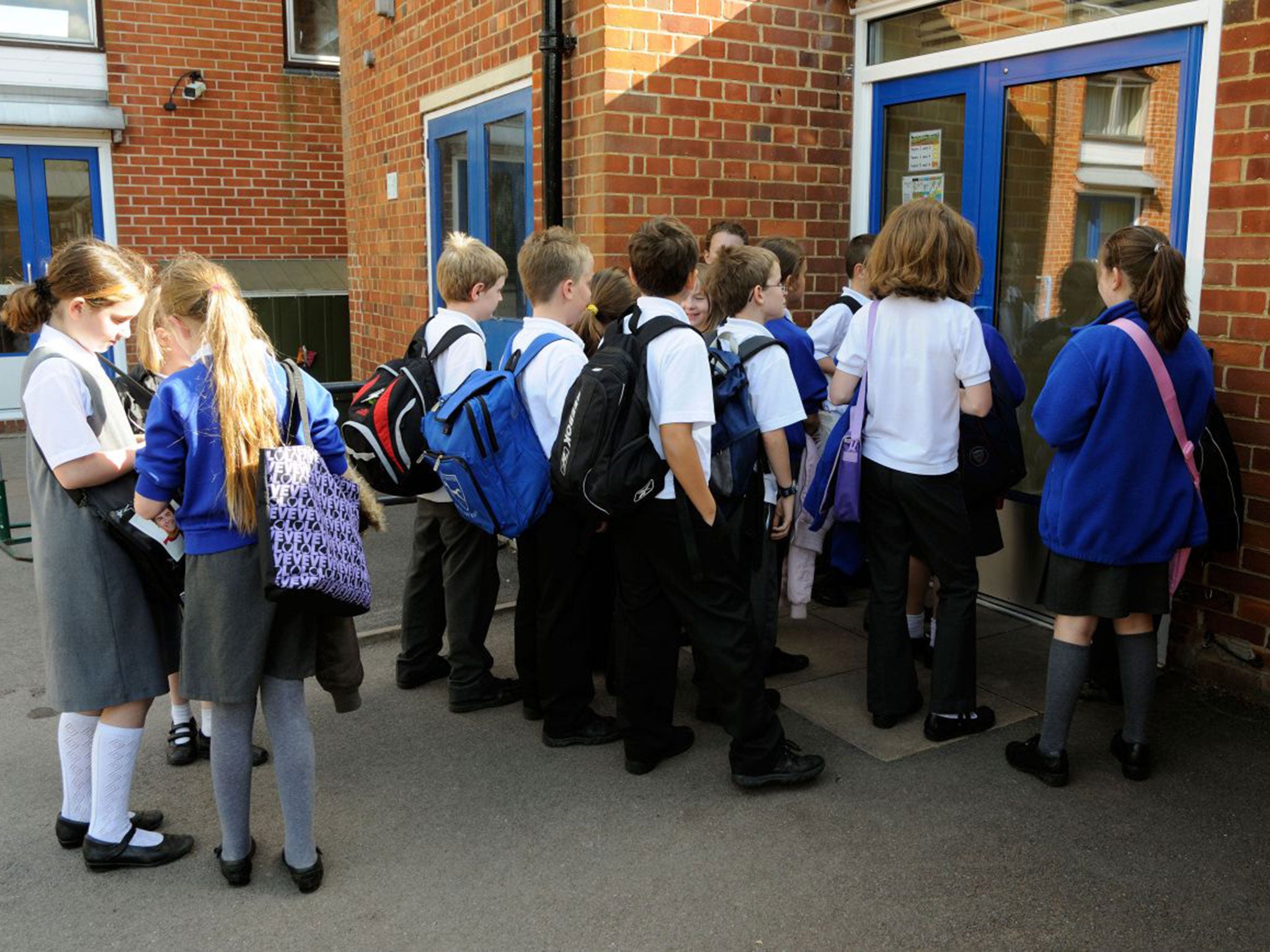School places allocation: Lottery is 'fairer' way of deciding who gets top school places, report says
Families who cannot afford to live near choicest institutions 'should not be penalised'

Your support helps us to tell the story
From reproductive rights to climate change to Big Tech, The Independent is on the ground when the story is developing. Whether it's investigating the financials of Elon Musk's pro-Trump PAC or producing our latest documentary, 'The A Word', which shines a light on the American women fighting for reproductive rights, we know how important it is to parse out the facts from the messaging.
At such a critical moment in US history, we need reporters on the ground. Your donation allows us to keep sending journalists to speak to both sides of the story.
The Independent is trusted by Americans across the entire political spectrum. And unlike many other quality news outlets, we choose not to lock Americans out of our reporting and analysis with paywalls. We believe quality journalism should be available to everyone, paid for by those who can afford it.
Your support makes all the difference.A lottery for school admissions could remove the barriers that stop disadvantaged pupils from getting into the country's top-performing schools, according to a new academic study.
Schools attended by the children of better-off parents have a substantially higher academic quality than those frequented by the poorest families, as wealthier parents can take advantage of admissions policies that favour parents who live nearer the school because they can afford the extra cash needed to buy homes there, it adds.
Proximity to schools is the most widely used criterion for determining applications, adding a further substantial difference in school quality, according to research by Bristol University's Centre for Marketing and Public Organisation (CMPO), Cambridge University and the Institute for Fiscal Studies.
The report goes on to say that families prefer to opt for schools in which there is a smaller proportion of children from low-income families.
One of the researchers. Professor Anna Vignoles, of Cambridge University, said: "Poor parents have fewer higher-performing schools available to them. This will remain true as long as proximity, and hence the size of your mortgage, determines access to such schools. To break the link between family background and access to good schools, more imaginative school allocation mechanisms are needed."
The report suggests two possible alternatives: a lottery or the reserving of a certain number of places for applicants living outside the school's catchment area.
"A lottery for oversubscribed places is one idea used around the world, but only infrequently in England," says the report. "Schools could [also] set aside a fraction of places for applicants who live beyond the 'catchment' area of the school."
In addition, it argues, schools could adopt a banding system – widely used in the past – where they take in an equal number of pupils from a range of ability bands or socioeconomic backgrounds.
The only area of the country to adopt what is calls a "random allocation" scheme, ie, a lottery, is Brighton – where it operates when a school is oversubscribed, with more families living in the catchment area than there are places. The Brighton scheme is currently under review. Some of the Government's flagship sponsored academies have also adopted a lottery system.
Parents have complained that it can penalise those who live nearest to the school (and may have paid a high premium to purchase accommodation near the school).
The report concludes: "What can be done? Popular schools cannot take everyone who applies – there has to be some mechanism to ration places. If we want to break the link between access to high-performing schools and family income, then we need an alternative to proximity as a tie-breaker."
Professor Simon Burgess, of the CMPO, said: "Obviously, the overall goal is to make all schools excellent. But until that Nirvana arrives, we should not ignore the question of how places in the better-performing schools are allocated. At the moment, the proximity criterion for admissions means differences in family income have a substantial and regressive impact on that allocation."
Join our commenting forum
Join thought-provoking conversations, follow other Independent readers and see their replies
Comments